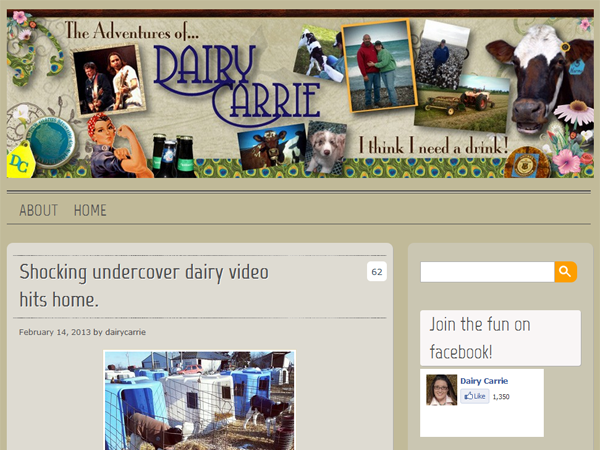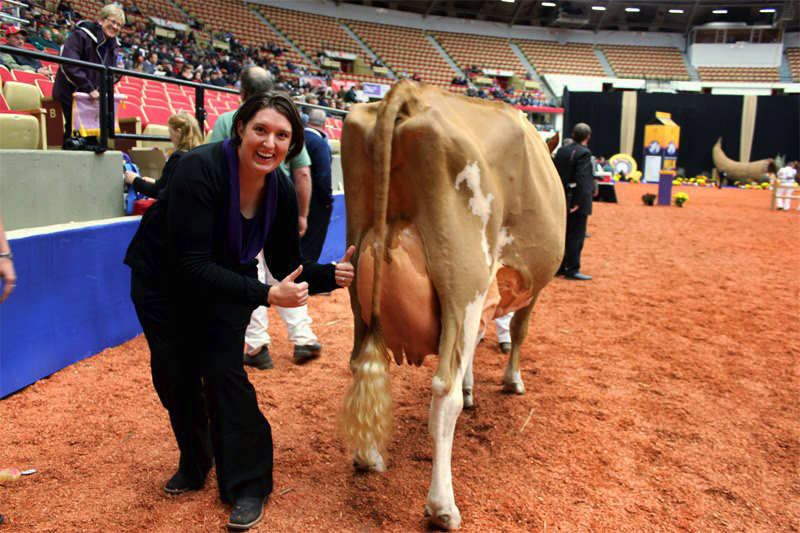Someone who does not work with animals on a daily basis may think that PETA (People for the Ethical Treatment of Animals) champions a very worthy cause in defending animal rights. The challenge is that the noble cause PETA started from, and the entity that it is today have grown a long ways apart. Recently PETA has received a significant amount of publicity in regards to its unacceptable behavior.
One might forgive, or at least understand, PETA’s conduct in regard to Gillette Emperor Smurf EX-91, who won a Guinness World Record for Lifetime Milk Production achievement. Unfortunately, instead of talking from a position of fact or knowledge, they just pulled stuff out of their butts and leveled accusations at people who love animals with the same venom they use on people they charge with mistreating and exploiting dairy cattle. (Read more: What PETA Does NOT KNOW about Raising Dairy Cattle!)
This reminds me of a movie my children like to watch called BEE Movie. In it when the bee, Barry B. Benson, graduates from college, he finds that he will have only one job for his entire life and, absolutely disappointed, he joins the team responsible for bringing the honey and pollination of the flowers to visit the world outside the hive. Once in Manhattan, he is saved by the florist Vanessa, and he breaks the bee law to thank Vanessa. They become friends, and Barry discovers that humans exploit bees to sell the honey they produce. Barry decides to sue the human race for having destructive consequences to nature. Sure he wins the court case, which I am sure many PETA followers got excited about, but as a result of humans no longer being able to produce and eat honey, all the bees are not needed. Eventually, they all stop working and, as a result; flowers are not pollinated; plants aren’t able to grow, and ultimately animals have nothing to eat, and humans and the whole ecosystem are devastated. At the end of the movie, they show a dairy cow explaining her “beefs” to the bee Barry B Benson. I am sure this also gave many PETA follows many incorrect ideas.
More recently PETA released a new video showing less-than-ideal situations on a Hickory, N.C., farm. The video shows cows slogging through incredibly thick manure. Their legs are dirty, and the amount of manure in the barn is unbelievable. The challenge is the video appears to be in fact a hoax and not an accurate depiction of the actual conditions or events at the Hickory dairy. Carrie Mess, in a post on her website, DairyCarrie.com. Mess took still screenshots of the video, showing relatively clean cows walking through a very full (in terms of manure) manure alley in a free stall barn. While Carrie admits that she does not know the exact story about this specific Hickory dairy, there are certainly many inaccurate accounts and analysis by PETA about his particular farm. PETA found her actions so “threatening” that they have served Carrie with a cease and desist letter, demanding a public apology and retraction of her article. Something they are never willing to do themselves for their actions. This fits with PETA`s formula. They find a farm with bad conditions or fabricate these conditions, link them to regional or national name brand, and get everyone talking about it, and then never being accountable for their actions. Because of that, dairy farmers like Dairy Carrie get an undeserved black eye and now have a huge hill to climb to get the correct information out.
It is interesting that PETA tactics have been able to continue for so long. Despite themselves having been connected with the Animal Liberation Front (ALF), an FBI-designated “domestic terrorist“ group. PETA`s support of the ALF appears to include financing the legal defense of arrested ALF activists, providing resources to individual ALF cells, recruiting interns for the sole purpose of committing criminal acts at protests, and publicizing ALF activities in a favorable manner. One witness interviewed by the FBI (whom other sources have indicated was a former long-term PETA employee) made statements suggesting that PETA was formed as a cover for the Animal Liberation Front (ALF). These are not the actions of a group whose number one concern is the ethical treatment of animals.
In fact the PETA, which claims to be dedicated to the cause of animal rights, can’t explain why its adoption rate is only 2.5 percent for dogs. Out of 760 dogs impounded in 2011, they killed 713, arranged for 19 to be adopted, and farmed out 36 to other shelters (not necessarily “no kill” ones). As for cats, they impounded 1,211, euthanized 1,198, transferred eight, and found homes for a grand total of five. PETA also took in 58 other companion animals — including rabbits. It killed 54 of them. These figures don’t reflect well on an organization dedicated to the cause of animal rights and possess a $30 million annual budget.
The Bullvine Bottom Line
While certainly not all dairy operations treat their cattle like they are at a spa (read more Westcoast), the vast majority do care for their animals responsibly. Good care is good commerce. Stress-free, healthy cows produce more milk and deliver more progeny over their lifetimes. Just like at well-run company where they treat their employees well, dairy farmers know that how they treat their cattle has a direct impact on their bottom line. The challenge with organizations like PETA is that they sensationalize the story to elicit a strong reaction from their supporters in order to gain more support and funding. The challenge with this is the tactics they are using are extremely questionable and hurt dairy farmers, who love their animals as much or more than PETA supporters do. Do they ever take the same effort to highlight examples of the best treatment of animals? Instead of working to understand the complete story, and working with producers to ensure proper treatment of animals, PETA looks to discredit the dairy industry with nothing more than lies, mistruths and inaccurate stories. Ethical treatment is a label we all need to live up to. Otherwise, PETA — you don’t know Jack!
Get original “Bullvine” content sent straight to your email inbox for free.







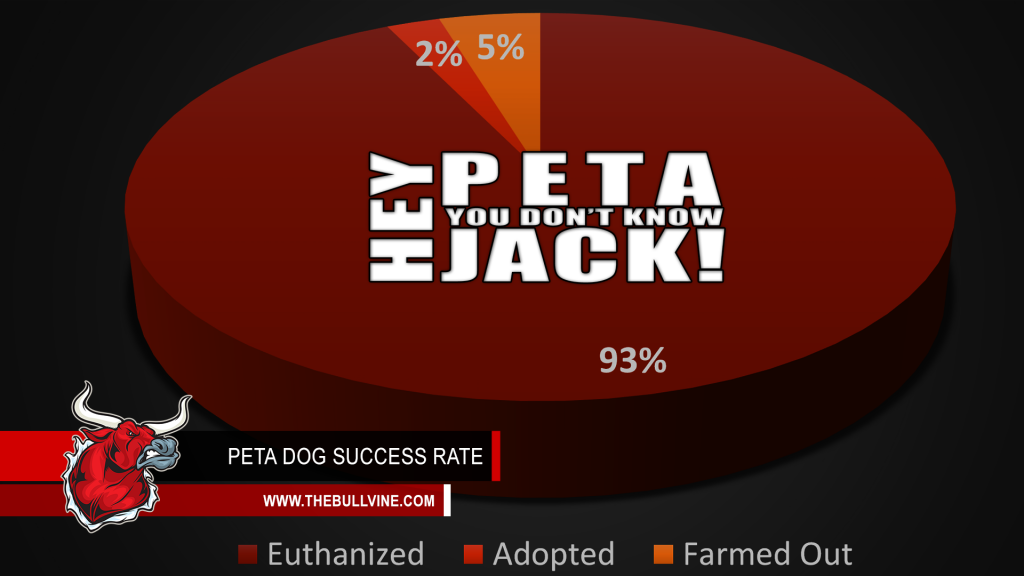

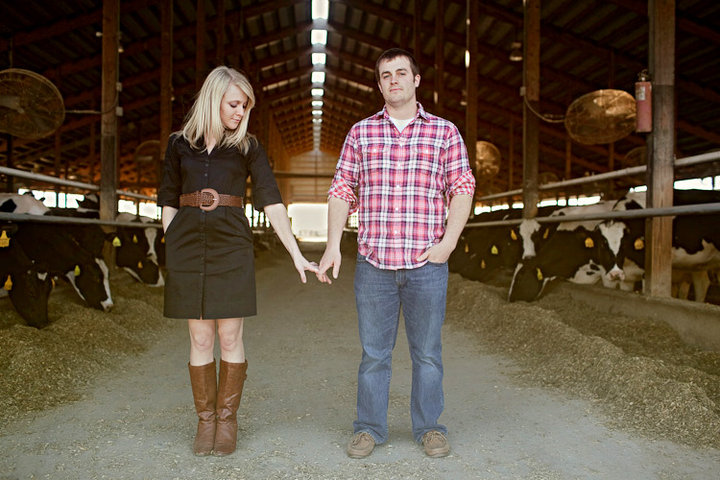
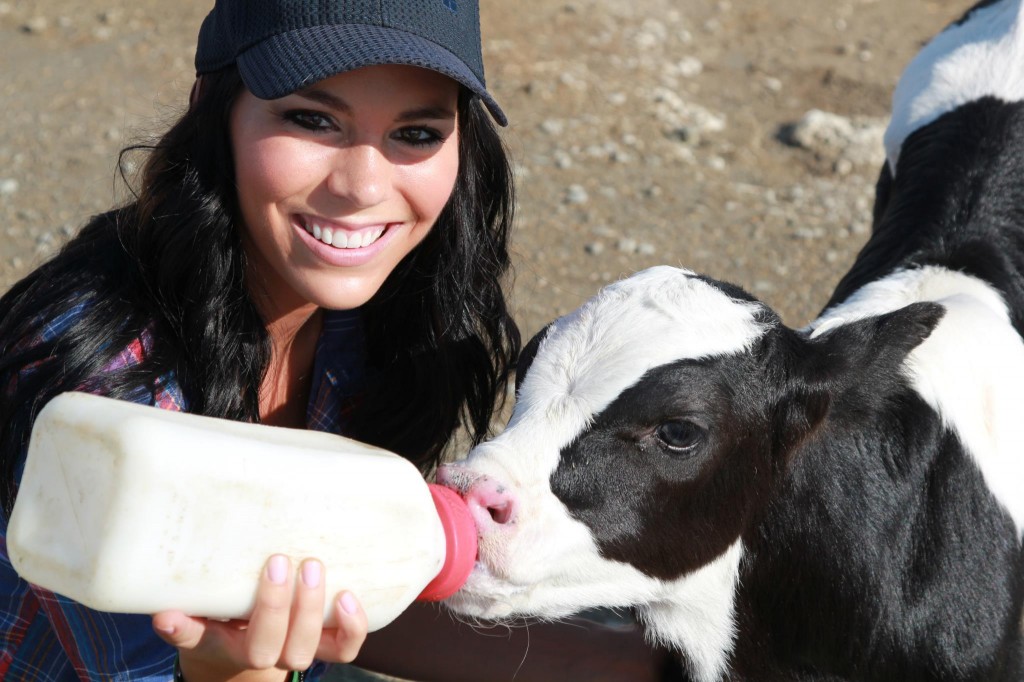
![dairy-farm-62f5c640afe8ac515ecbb021ad34ddf6d141b7f3-s6-c30[1]](https://www.thebullvine.com/wp-content/uploads/2014/05/dairy-farm-62f5c640afe8ac515ecbb021ad34ddf6d141b7f3-s6-c301.jpg)



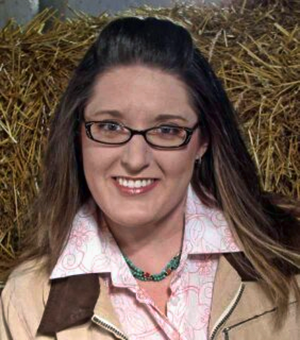 “I grew up in Madison WI, exactly 2 miles south of the World Dairy Expo grounds.” So begins what could be a simple diary entry. But there is nothing simple about the writing of Carrie Mess who was raised in the heart of dairy land but not exactly part of it – at least not in the beginning. “Aside from seeing lots of cattle trailers on the Beltline as a kid, I had zero connection to dairy farms.” That all changed when Carrie met Patrick Mess whose family has been in the dairy business for generations. “After we got married I left my job in town and started working on the farm. We knew we wanted farming to be a part of our future but I had no idea if I could hack it on a dairy farm. I literally knew nothing about cows when I started but fell in love fast and found what I believe is the path I was meant to be on.” Those who know Carrie wholeheartedly agree.
“I grew up in Madison WI, exactly 2 miles south of the World Dairy Expo grounds.” So begins what could be a simple diary entry. But there is nothing simple about the writing of Carrie Mess who was raised in the heart of dairy land but not exactly part of it – at least not in the beginning. “Aside from seeing lots of cattle trailers on the Beltline as a kid, I had zero connection to dairy farms.” That all changed when Carrie met Patrick Mess whose family has been in the dairy business for generations. “After we got married I left my job in town and started working on the farm. We knew we wanted farming to be a part of our future but I had no idea if I could hack it on a dairy farm. I literally knew nothing about cows when I started but fell in love fast and found what I believe is the path I was meant to be on.” Those who know Carrie wholeheartedly agree.